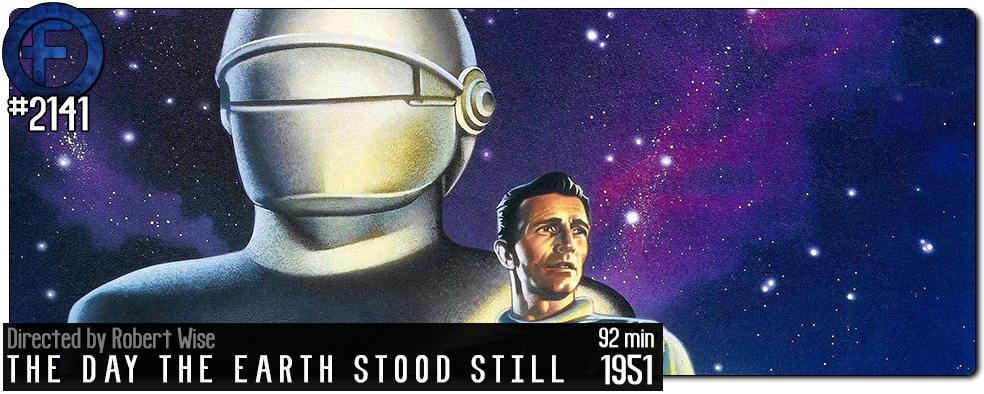Movie Review – Day The Earth Stood Still, The
Principal Cast : Michael Rennie, Patricia Neal, Hugh Marlowe, Sam Jaffe, Billy Gray, Frances Bavier, Lock Martin, Drew Pearson, Harry Lauter, Frank Conroy, Fay Roope, Robert Osterloh, John Brown, Tyler McVey.
Synopsis: An alien lands in Washington, D.C. and tells the people of Earth that they must live peacefully or be destroyed as a danger to other planets.
********
At its very heart, Robert Wise’s The Day The Earth Stood Still reminds us all to take care of our planet. Whatever global catastrophe may loom, be it climate change to nuclear armageddon, this 1951 classic sci-fi movie challenges us to be a better species, lest we, too, go the way of the dinosaur. Set against the backdrop of the early years of the Cold War, and ripe with fermented fear of The Other – be it the Red Scare or something else entirely – the original Day The Earth Stood Still (not to be confused with the lacklustre 2008 remake starring Keanu Reeves) marked a pivotal point in Hollywood’s fascination with the genre, with the film moving into a headier, more intellectual tone rather than traditional rubber-suited monsters lurking in every corner. While it has dated severely in the half-century or so since Gort first stepped onto the prow of the iconic saucer ship ensconced in a Washington DC park, The Day The Earth Stood Still is a fascinating, if slowly paced, examination of fear, humanity and destiny.
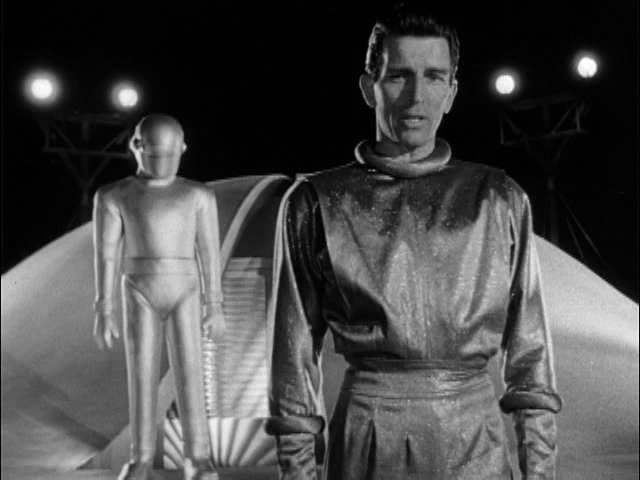
After a mysterious alien craft is spotted circling the globe, before landing across from the Washington Monument in Washington DC, out emerges a humanoid alien, Klaatu (Michael Rennie), alongside his giant robotic companion, Gort (Tyler McVey), to inform the Earth that they come in peace. Of course, a misunderstanding ensures one of the surrounding solders fires at Klaatu, wounding him, leading to his installation at a nearby military base, before he escapes out into the city. Klaatu mixes as a human, finding a room to rent at a nearby house, where he meets widow Helen Benson (Patricia Neal) and her young son Bobby (Billy Gray), as well as arousing the suspicions of Helen’s beau, Tom Stevens (Hugh Marlowe). As the military searches for the missing Klaatu, the alien starts to learn about human culture and civilisation through the eyes of young Bobby, before his apparent death at the hands of pursuing agents. Resurrected aboard his spacecraft by the powerful Gort, Klaatu exhorts humanity to save itself from extinction by putting a stop to our violent ways.
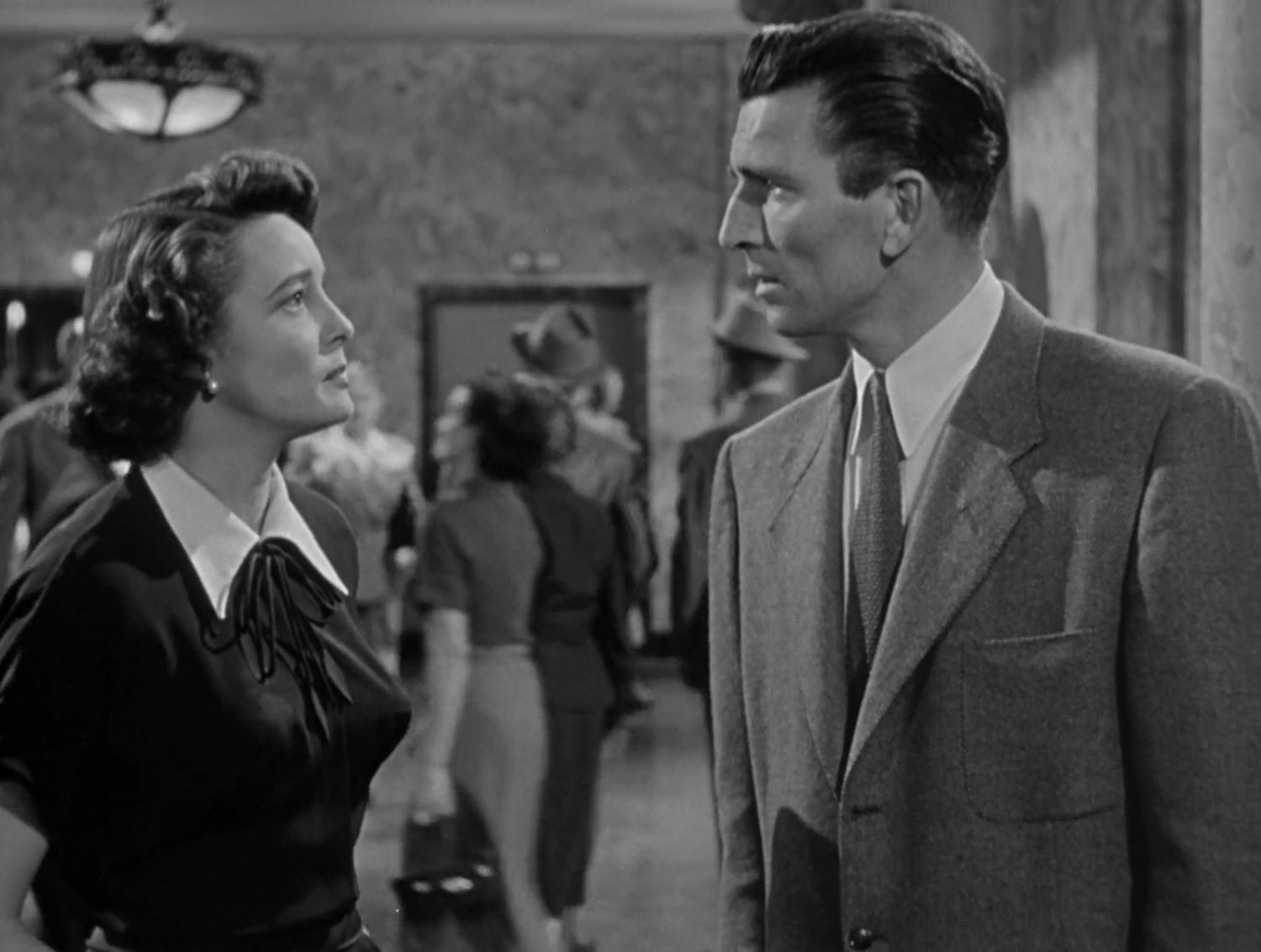
Few films have retained their pop-culture status from the mid-20th Century quite like this one. The Day The Earth Stood Still was an enormous critical success, if only a moderate box-office one, but has since been relitigated by cineastes as one of the more indelible films of its vintage. At a time when the Cold War and McCarthyism was at its height, and America’s belief in its own military might was at its strongest public perception, this film somehow sought to remind us that for all mankind’s great power, there might very well be another, stronger power lurking out there beyond the stars. Of course, the film arrived a decade before Russian cosmonaut Yuri Gagarin would become the first man to orbit the Earth, so Hollywood’s ideas about space travel and potential alien life were embryonic at best, but aside from one or two minor foibles The Day The Earth Stood Still came like a bolt from the blue and reset the potential for hostile life beyond our atmosphere as a mainstay Hollywood villain. That’s not to say the film’s central antagonist, alien visitor Klaatu, is a villain, but he does represent progress from a civilisation far in advance of our own and with a moral and ethical paradigm shift that humans of the mid-Century Earth weren’t inclined to accept. The film’s themes of acceptance and understanding differences, of power and fear, of not protecting the only planet we know of that can sustain life, were widely applauded by critics and audiences, so much so that the Golden Globe Awards even gave the production a special one-off award for “promoting international understanding”.
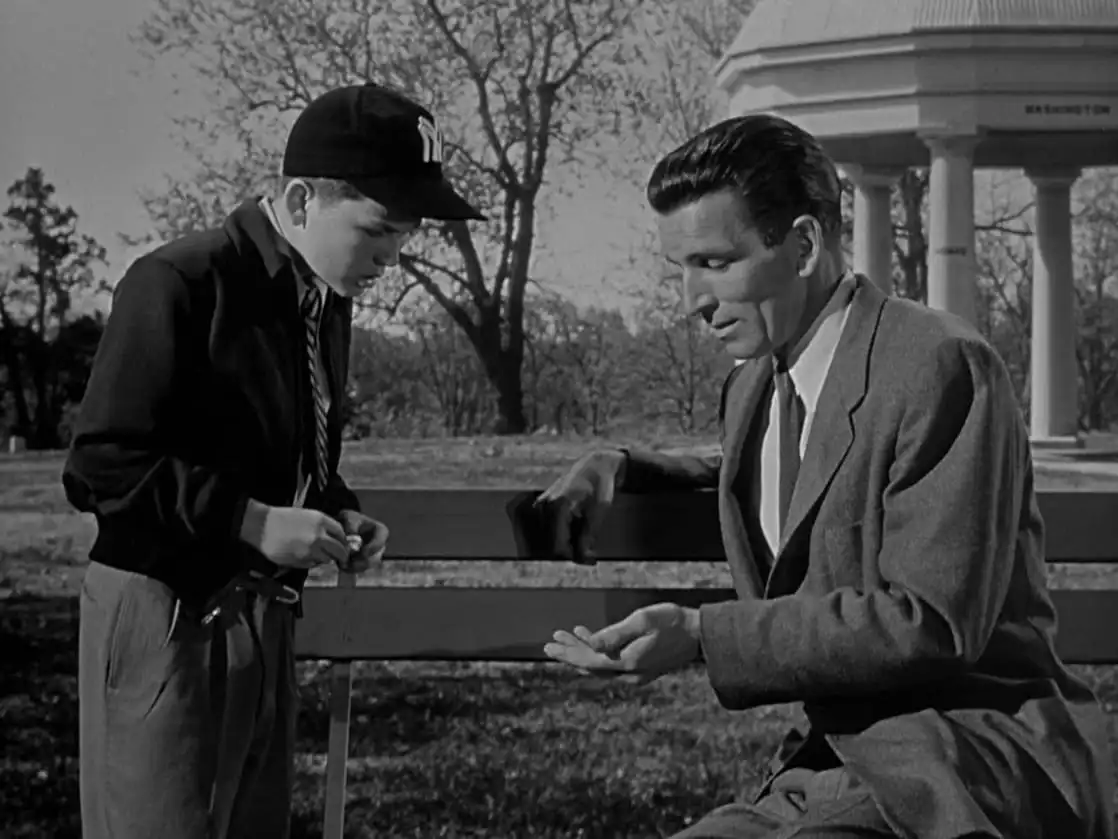
Despite time not being particularly kind to the film’s script, its performances and characters, or its depiction of technology, there’s an old-fashioned charm to Robert Wise’s direction and Michael Rennie’s popular humanoid take on Klaatu. From a technical aspect, the film now appears quite clunky and cheap, with vast use of stock footage, rear-projection backgrounds and small, cardboard-looking sets. By far the biggest spend on the film (made for a reputed sub-$1m in 1950’s money) was Klaatu’s iconic saucer spacecraft, as well as the giant robotic protector in Gort; both these elements of the film look great even today, although the typically soft-edged 50’s design aesthetic will take some people out of the story. The film’s vast ensemble of cameos and bit parts surrounds both Rennie and his leading lady, a pragmatic Patricia Neal as Helen, and a sweet Billy Gray as her son Bobby. The story mechanics are little overly complicated, as well as slightly contrived, but the throughline of the film never wavers from the alien viewpoint. Klaatu is here to deliver a message, if only he could get the boneheaded powerbrokers of the Earth to listen. As fish-out-of-water stories go, this is a particular fish it’s fun to watch learn about our culture.
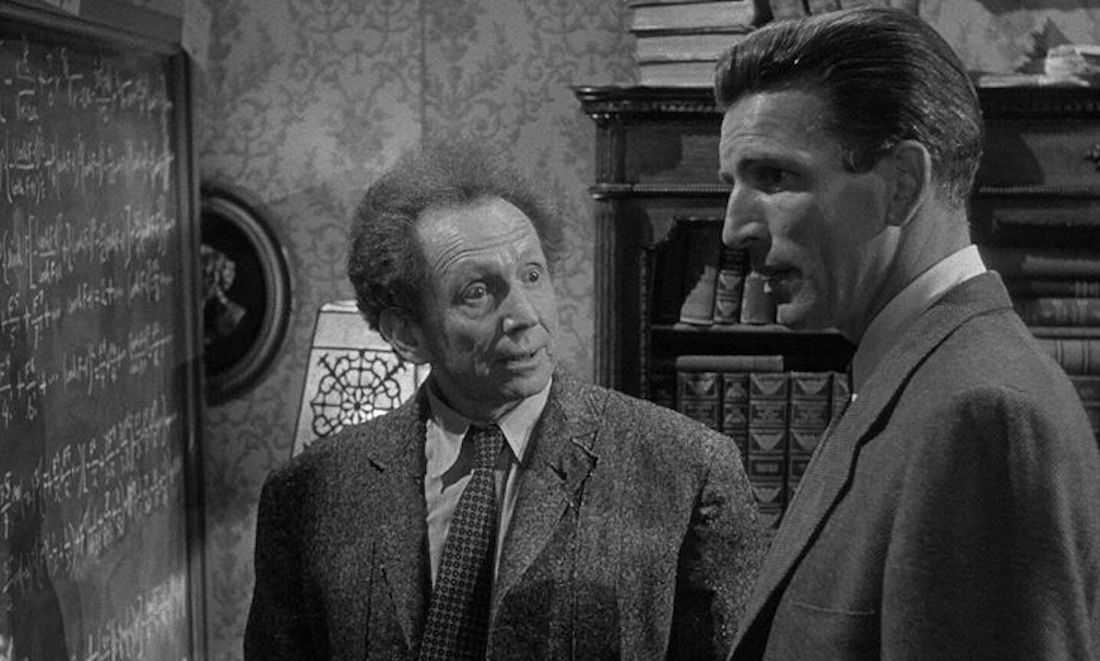
One of the things this film often makes me think about is just how we would react to actual aliens arriving on planet Earth. Little green men, grey skinned corpse-things, bug-eyed monsters, be they violent or friendly; how would humanity greet extra-terrestrial visitors were they to descend and promise global annihilation if we continue down our chosen path. Given the propensity for armed conflict has only risen in the decades since the film’s release, and the fracturing of social, political and religious viewpoints in an “everyone’s opinion is valid” internet age, I would doubt we’d be anywhere near as accommodating as the military forces in this film are depicted as being. Even Klaatu’s Christ-like arrival, journey and eventual death and resurrection story, hidden behind the glossy cinematography and overt focus on militarism and conflict, echoes from the Biblical journey of Jesus and his treatment by the wider public and the local authorities. It’s a metaphor not lost on the wise, that’s for sure.
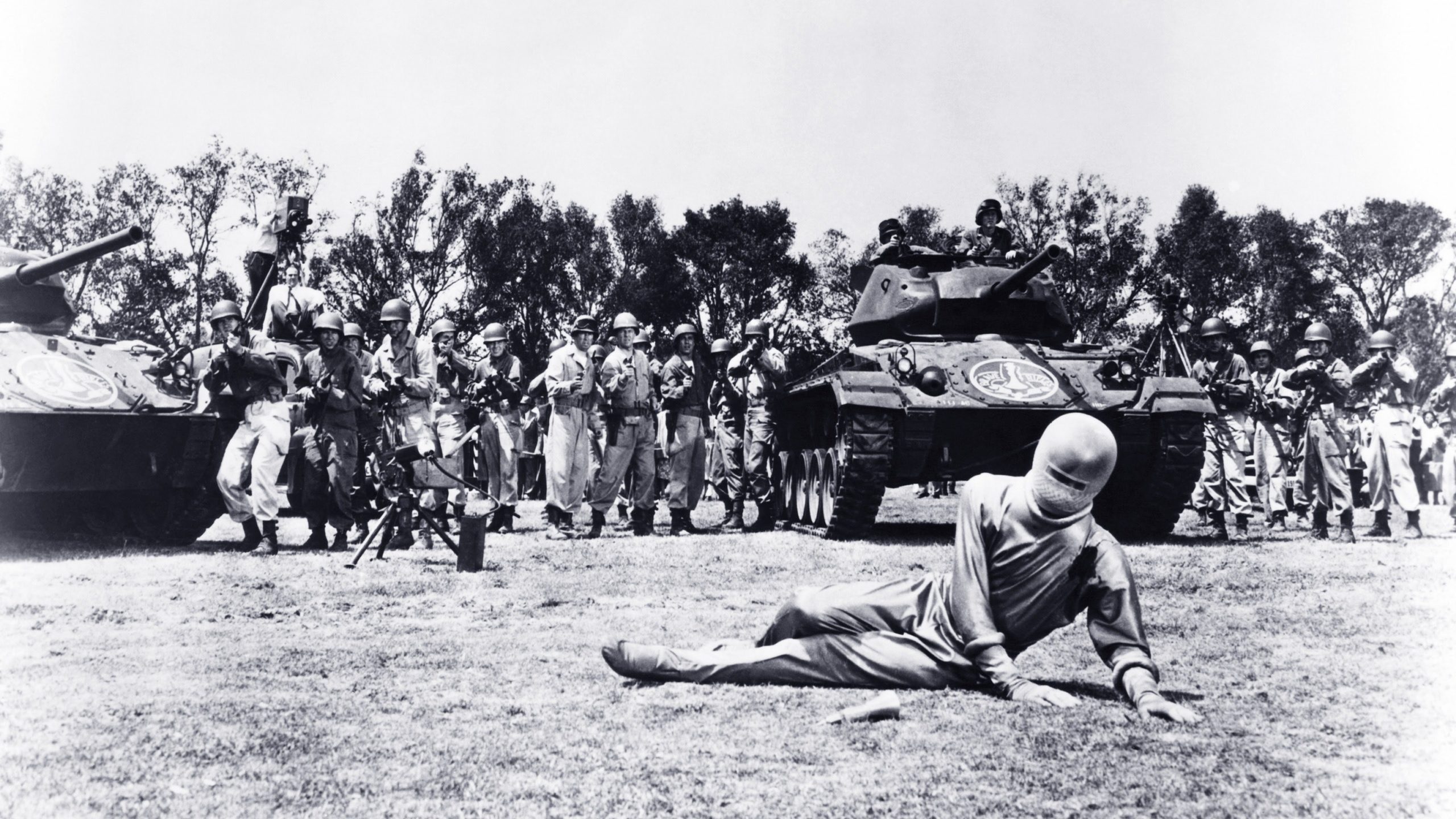
The Day The Earth Stood Still is a classic, there’s no doubt.. It’s also dated badly in terms of its production value, even if the underlying story and narrative still hold their power. Michael Rennie proved himself a compelling leading man, anchoring the film with stoicism and a deep resignation of forbearance, knowing that humanity, regardless of his beseeching, will likely never turn from their violent ways. Sometimes cheesy, sometimes quite powerful, and altogether a deep thought on our collective future, The Day The Earth Stood Still is still one of those “films you need to see before you die” for a reason.

